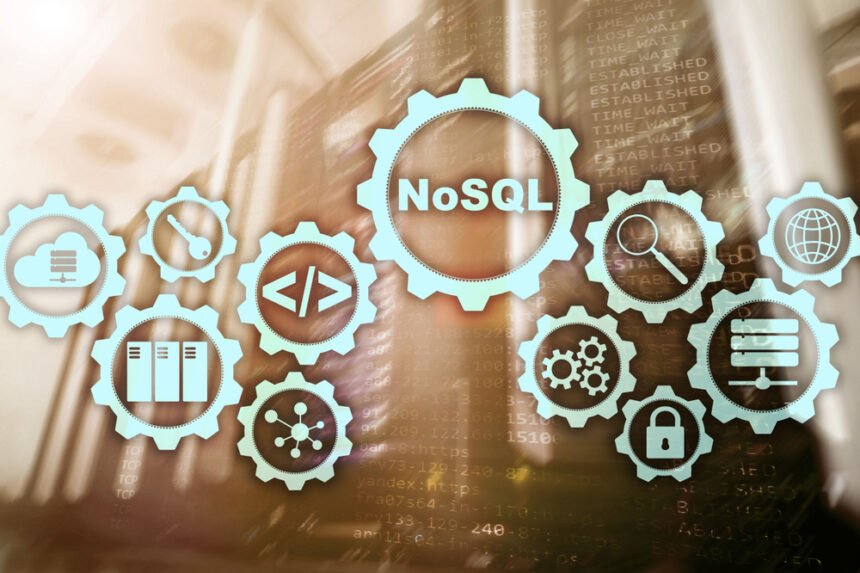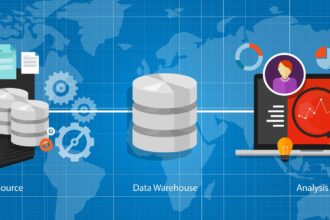Big data technology is a double-edged sword for many companies. They are discovering that there are countless benefits of investing in data in business.
Unfortunately, making use of big data is a challenge for many companies. They have accumulated large amounts of data, but struggle to analyze it. Only around 12% of their data is properly analyzed.
The issue is that it is difficult to manage data without the right infrastructure. One of the most important things companies need is a database.
NoSQL databases are the alternative to SQL databases. They come in different types and provide flexible schemas, allowing them to easily scale with high user loads and large data amounts. Today we’ll discuss what NoSQL databases are, what types of them exist, as well as their advantages and disadvantages they offer to data-driven businesses.
Let’s jump right into it.
What are NoSQL databases and where did they come from?
A “NoSQL database” is an umbrella term that covers all types of non-relational databases – that is, all non SQL databases, as the name suggests. While SQL databases store data in rigid relational tables, NoSQL databases provide more flexibility.
NoSQL databases became possible fairly recently, in the late 2000s, all thanks to the decrease in the price of data storage. Just like that, the need for complex and difficult-to-manage data models has dissipated to give way to better developer productivity. Some of the most popular NoSQL databases currently are: Redis, MongoDB, Couchbase.
According to the DB Engines rankings, SQL databases are still the most popular choice among developers. However, NoSQL databases still have their place in the software development industry, and you will soon find out why.
What are the types of NoSQL databases?
NoSQL databases are split into types depending on the format they use to store data. The four main types are:
- Document databases. These store data in JSON-like documents, with each document containing pairs of values and fields. The values can be anything from strings and numbers to booleans, objects, and arrays.
- Wide-column databases. This type of database stores information in dynamic columns, rows, and tables.
- Key-value databases. This type of database is relatively simple. Here, every item contains keys and values.
- Graph databases. Databases of this type store data in edges and nodes. The latter are usually used to store information about concrete objects, such as people and locations, while edges store data about their relationships between each other.
What are the benefits of NoSQL databases?
There are a number of advantages that come with using NoSQL databases, which generally make them more versatile and easier to use. Here’s why you may want to choose these over their SQL counterparts, whether you are a solo developer or part of a custom web application development company.
Ease of use
The process of operating NoSQL databases is notably more smooth. For instance, a lot of them use data structures similar to those of popular programming languages, which allows developers to store information in the same way they write their solution’s code. This reduces the overall amount of code and number of possible bugs, thus leading to faster development.
Flexible schemas
As a whole, NoSQL databases have far more flexible data models like data catalogues, which make editing the information in them very easy. For example, integrating new features into an application and scaling it is a lot faster with a NoSQL database.
Fast queries
NoSQL queries are often faster than those made in SQL ones. That’s because SQL databases normalize data, so a query for a single object will require the system to collect data from several different tables, and this process becomes longer and longer as the tables expand.
In contrast, NoSQL databases specially store data in a way that encourages faster queries – there, the information that is typically accessed together is stored together as well, so the system doesn’t need to scour through the whole library to find the necessary objects or entities piece by piece.
Ability to scale horizontally
SQL databases are primarily aimed at vertical scaling, which implies migrating to bigger and more powerful servers when the current one is unable to meet the growing requirements. NoSQL databases give you the cheaper opportunity of scaling horizontally by hooking up additional servers to the original one, removing the need for total data migration.
What are the disadvantages of NoSQL databases?
Like any other technology, NoSQL databases have certain limitations.
Lack of ACID support
One of the most common drawbacks of most NoSQL databases is the inability to carry out ACID transactions between multiple documents. While single record atomicity is available for many applications given appropriate schema design, there are still a lot of apps that require ACID support across multiple records.
Bigger space requirements
As mentioned above, NoSQL databases are optimized for fast queries, not for compact information storage. Since they don’t reduce data duplication as well as their SQL alternatives, NoSQL databases tend to require more storage space. Though, nowadays this disadvantage is seen as pretty minor, as storage is generally cheap and a number of NoSQL databases support file compression.
Sometimes too specialized
NoSQL databases are usually honed for a specific purpose. Graph databases, for example, are great for analyzing data relationships, but won’t be too useful for some everyday processes, such as range queries. That’s why you need to carefully consider the requirements of your project – in the end, you will likely need to use several databases at a time.
Data-Driven Businesses Should Consider Using NoSQL Databases
As companies become more dependent on big data, they have to consider the importance of investing in the right databases. NoSQL databases are perfect for developers that prefer flexible schemas, fast queries, ease of use, and quality horizontal scaling. They are divided into types based on the way they store their data, falling into the document, key-value, graph, or wide-column category. However, developers need to remember that many NoSQL databases lack ACID functionality, might require more storage space, and won’t always be able to meet all project requirements on their own.










